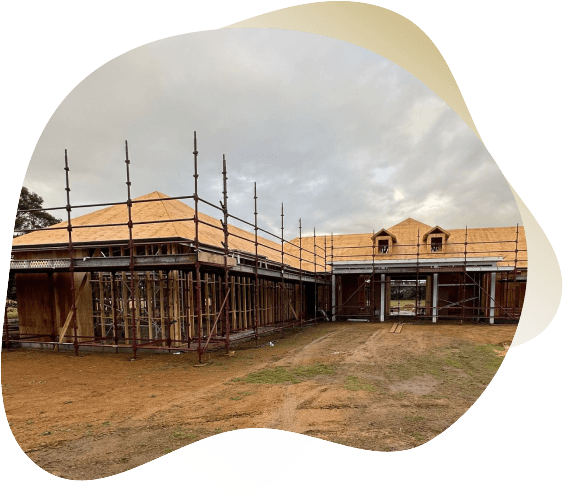Enjoy peace of mind knowing your building project is compliant now and into the future, with the security of a building permit.

Meeting your legal requirements now, avoids legal issues down the track
Ensuring your building project’s future security, a building permit guarantees that your construction meets all legal requirements. This foresight not only protects you from potential legal and safety issues but also enhances the long-term value and integrity of your property, making future renovations or sales smoother and more straightforward.

Guiding owner builders through the regulatory process
We make obtaining building permits faster and more straightforward for you. Our expertise ensures that your applications are prepared accurately, reducing delays. This efficiency not only saves time but also minimises stress, allowing you to focus on the other important aspects of your construction project.
Tailored to fit your specific needs
Customisation is key in ensuring your building project’s success. A building permit process that offers tailored solutions adapts to the unique aspects of your project, whether it’s a residential home, unit developments, or a specialised structure like a shed or deck. This personalised approach ensures that every detail of your project aligns with regulatory requirements while also meeting your specific needs and vision.
Building Permits for Every Project
Residential and Living Spaces
- New Dwellings
- Small Second Dwellings (granny flats, tiny homes, etc.)
- Unit Developments
- Renovations (including alterations and additions to existing dwellings)
- Home Extensions
- Modular or Prefabricated Buildings
Outdoor Structures and Enhancements
- Decks
- Verandahs
- Pergolas
- Patios
- Balconies
- Retaining Walls
- Fences
- Carports
- Garages
- Sheds
- Pools & Spas
Building Permit Process,
From Application to Final Approval

Permit Application:
- Timely assessment of the building permit application.
- Comprehensive review of design documentation for compliance with building regulations.
- Issuance of the building permit or construction certificate.
Building Inspections (During Construction):
- Conducting mandatory inspections throughout the construction process.
- Undertaking non-mandatory inspections if requested by the client.
Occupancy Permit and Final Building Approval:
- Issuing the Occupancy Permit or Certificate of Final Inspection upon project completion.
- Ensuring all construction meets the required standards for final approval.
What a true professional, great communication every step of the way, couldn’t recommend more highly.
Building Permit – FAQ
Do I need an owner builder permit for adding an extension to my home?
For home extensions, an owner builder permit is often required, especially for significant alterations. This permit allows you to undertake the construction work yourself and/or managing it, ensuring you adhere to safety and building standards. It’s important to check local regulations, as requirements can vary based on the project’s scale and location.
How does being an owner builder affect my building permit application process?
As an owner builder, your building permit application process involves additional responsibilities. You’ll need to demonstrate a clear understanding of building regulations and prove your capability to manage the construction. This often includes providing detailed plans and possibly completing an owner builder course or exam, depending on local requirements.
Do I need a shed permit for a small garden shed on my property?
The requirement for a shed permit depends on the size and location of the shed. Generally, small garden sheds may not require a permit, but larger structures or sheds placed near property boundaries might. It’s advisable to check with local authorities as regulations vary, ensuring your shed complies with zoning and building codes.
What information do I need to provide to apply for a deck permit?
To apply for a deck permit, you’ll typically need to submit detailed plans of the deck, including dimensions, materials, and the location relative to your property. Additionally, information on how the deck will be constructed and any impact on existing structures is crucial. You may also be required to provide details on safety features, especially for elevated decks.